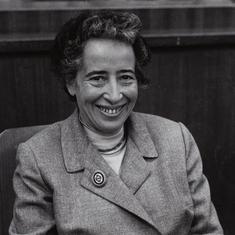Trial court ‘swayed by emotions’: Delhi Police challenge order discharging activists in Jamia case
The Delhi High Court accepted the police’s plea and listed it for hearing on February 13.

The Delhi High Court on Friday accepted a plea challenging a trial court’s decision to discharge 11 persons, including activists Sharjeel Imam, Asif Iqbal Tanha and Safoora Zargar, in a case related to violence at the city’s Jamia Millia Islamia University in 2019, reported Live Law.
Violence had erupted on the Jamia Millia Islamia campus on December 15, 2019, during student protests against the Citizenship (Amendment) Act. The Delhi Police was accused of barging into the university campus and using excessive force to quell the demonstrations. The police claimed its action was justified as the protestors had allegedly injured its personnel and set buses on fire.
On February 4, Additional Sessions Judge (Saket Court) Arul Varma in his order had said that the Delhi Police roped in the activists as scapegoats and were unable to apprehend the actual perpetrators of the offence.
The plea filed by the Delhi Police was mentioned before a division bench of Chief Justice Satish Chandra Sharma and Justice Subramonium Prasad by Solicitor General Tushar Mehta on Friday. It will be heard on February 13.
The Delhi Police alleged that the trial court was “swayed by motions and sentimental feelings” while making the decision.
The Delhi Police also said that the trial court raised aspersions and passed “gravely prejudicial and adverse remarks” against its investigation, reported The Indian Express.
The police argued that the trial court failed to consider the evidence on record and proceeded to discharge the accused at the stage of framing of charges.
Delhi Police’s plea against discharge order states that the trial court erred not only in holding “mini-trial” but also recorded “perverse findings” which are contrary to the record to arrive the finding that the a case of discharge was made out. #DelhiPolice #DelhiHighCourt
— Live Law (@LiveLawIndia) February 10, 2023
It also alleged that the lower court had held a “mini-trial” at the stage, according to Live Law.
“Trial court failed to appreciate that protest planned was not a typical protest normal in the political culture or democracy but one far more evil and injurious geared towards extremely grave consequences is apparent from the admitted facts on the record,” the police said in the plea.
Apart from Imam, Zargar and Tanha, the Saket court on February 4 had discharged Mohammed Abuzar, Umair Ahmad, Mohammed Shoaib, Mahmood Anwar, Mohammed Qasim, Mohammed Bilal Nadeem, Shahzar Raza Khan and Chanda Yadav in the case.
Saket court’s observations
The judge had said that there was no prima facie evidence that the accused were part of the mob violence, had any weapon, or were throwing stones.
Varma in his order had also referred to Article 19 of the Constitution of India, and said, “Dissent is nothing but an extension of invaluable fundamental right to freedom of speech and expression. It is therefore a right which we are sworn to uphold.”
The liberty of protesting citizens should not have been lightly interfered with, the court added while stating that the prosecution has ex-facie been launched in a “perfunctory and cavalier fashion” against the accused persons.
The court, however, had directed the filing of charges against one of the accused persons, Mohammed Ilyas. He faces allegations pertaining to rioting, attempts to commit culpable homicide and criminal conspiracy in the matter.









